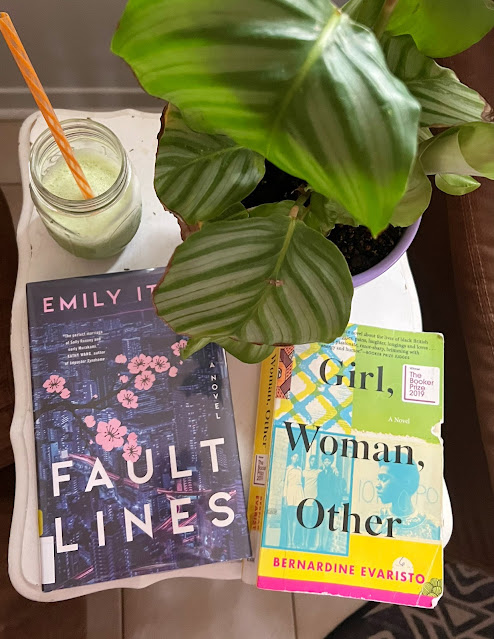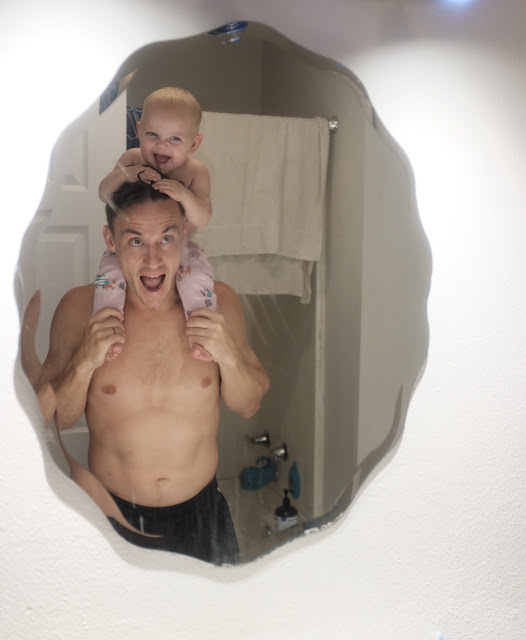April Book Round Up
April book reviews here we go. I read fewer books this month, but three of them were over 400 pages, so it felt like a hefty month. Snippets of Bittersweet: How Sorrow and Longing Make Us Whole by Susan Cain were also tossed around in between each book, or simultaneously. I try not to read fiction during the day, save it for the evening and write or use my own brain (or lets be honest, just get things done around the house). But I do allow myself nonfiction during the day as I feel like my brain fires a bit better on bigger ideas and can spur my own thinking when I'm not totally wiped out from the day. Enter Susan Cain. I didn't finish that book, I'm sure the review will be next month, or even the month after, it's slow, moody, absorbing, with that one, so rich and good (so just go get it already). To start off the month, two holds from the library popped up so I started with them, as the best rule goes, library first, your own books second - especially those popular holds. I'd waited 5 months to get Fault Lines, I wasn't losing that before I could finish it. In general however, I've had a hard time getting into fiction lately. I think I'm beginning to shift a bit more to the nonfiction I adored before the pandemic/pregnancy had me jonesing for escapism. Now I want a story that's really saying something, that's going to make me feel and think. This month didn't disappoint in that category.
First book of April, Girl, Woman, Other by Bernardine Evaristo was outstanding. I'm not even sure where to start with it. Evaristo tells the story of twelve different characters, a feat in itself, all British Black women, winding their stories together somewhat like tree roots. Connected by life in some way. Many of the characters are a mother/daughter combo which I loved, going deeper into a generational story. I don't know much about racial history in Great Britain but between this book and Black Cake I'm learning more. It doesn't seem to be as bad as in America, but still nothing brag about. I feel like Girl, Woman, Other also gave me (clap for emphasis) an education (clap again) on the Trans world. Definitions, ideas surrounding it, the characters asking the stupid questions I would ask so I don't have to, while another character calls her out and educates. I appreciated it. Also just the level of knowledge of women, ages and culture of London Evaristo has and shows expertly is amazing. How she can channel an adolescent girl undergoing horrific events, a university-aged woke girl, a ninety eight year old women who hasn't left the farm her entire life, middle aged lesbians... it's, again, outstanding. There's a reason she won the Booker Prize for this one. Her humor. Her deep sense of humanity. I laughed, I cried, I felt my heart expand. One woman has a dream about a female army of maids coming to clean the world, literally and figuratively. The environment, the people who do harm... it was the most moving chapter in the book. It's a world we all dream of, long for. With clean water, green fields, plenty of food for everyone, kindness all around. Her eloquence with worlds had tears streaming down my face. Five stars for Girl, Woman, Other.
The second book I finished was Fault Lines by Emily Itami was another solid read. I beginning to sense that while I do love a good, easy, fun, quick read, I tend to get bored with them too fast. I really do enjoy fiction that makes my brain work, makes a think a bit deeper. A book that has sentences, paragraphs or chapters that make me catch my breath or literally physically hold my heart. That happened in this book. Right before Mizuki puts her hand to her heart while watching something emotionally moving and dear to her, my hand went to my heart. When an author can make something mean that much to you, as it does the character. That's it. That's damn good writing. The premise of this book is a frustrated, lonely housewife who's husband works ridiculous hours and they're all just playing their role in Japanese culture, except she's not up for it any more, she wants more. An exploration of an affair, how it happens, why it happens, does it work out or not? Is it worth leaving the family for. All the complex feelings of a wife, mother, woman in this world who wants more out of life than what a culture values in a woman. When do we be happy with what we've got and when do we push for more? This book make me want to visit Tokyo so bad. The descriptions of the culture and city had me aching to live on the 32nd floor of a sky scraper in a city that comes alive at night and speaks in whispers during the day, try out something totally new. I could also deeply relate to Mizuki's feelings on being a stay at home mom. One chapter she describes being out as the sun is setting, riding bikes with her kids from park to park and instead of heading home to do the dinner/bath/bedtime routine, she opts to stay out. But her description of being out at that time of day, feeling the hope and energy in a setting sun, being out of the house and not stuck in the thick of cleaning up, screaming kids, how after years of that a depression can settle in, but seeing the changing colors of the sky, seeing the day in, energized her. I related to that so much I turned on Maggie Roger's Color Song and might have cried a little. Hello, yes, I'm an enneagram 4 ha. But I loved this book. It was short yet packed a punch.




Comments
Post a Comment